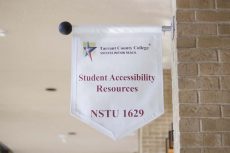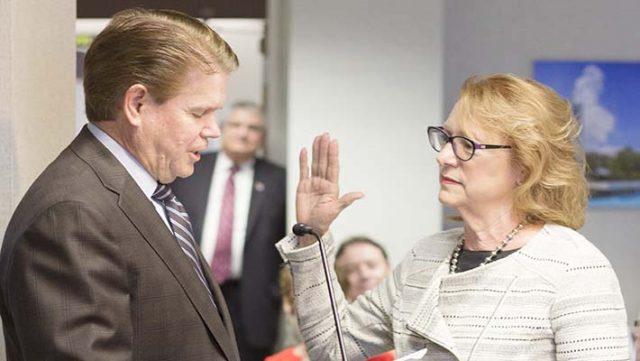By Tori Loudenback and Colt Taylor

Bogdan Sierra Miranda/The Collegian
TCC provides accommodations for a wide variety of students on all campuses. One such service may not sound familiar although it has served students for years.
Previously known as disability support services, the office recently changed its name to student accessibility resources, SE SAR coordinator Kaleb Cameron said.
Students often have difficulty saying they have a disability, so having the word disability in the title became a barrier for some students.
“The name student accessibility resources is consistent with and promotes a social model of disability, universal design and more inclusive and accessible campuses that empower the independence of students with disabilities,” Cameron said.
All students are viewed by their abilities, not their disabilities, NE SAR administrative assistant Susan McWaters said.
SAR on all campuses helps students achieve their educational goals by providing specific accommodations based on their individual needs.
“If students have a physical, emotional or mental disability, we are here to provide accommodations,” she said.
Students who wish to apply for SAR services at TCC must follow specific guidelines. They must complete an application process provided by the SAR center, followed by documentation from a licensed professional, McWaters said.
“Students must be registered for their classes or continuing education courses to receive accommodations,” she said.
Every semester, the students have to meet with a SAR coordinator to renew their accommodations, McWaters said.
The SAR offices provide many kinds of accommodations, South SAR student development associate Robin Rhyand said.
“If one has a serious illness, there is an absent/tardy leniency while students with learning disabilities may need a distraction-free testing environment,” she said.
The campus libraries have computers accessible for students with specific disabilities, Rhyand said.
SAR provides sign language interpreters and professional notetakers for those who need them.
“When taking tests in the SAR center, students may schedule testing two days in advance,” SE SAR senior secretary Pamela Oliver said.
Most students are accommodated with time and a half to take their tests. Some qualify for double time, Oliver said.
The testing centers provide quiet environments compared to a classroom of 30 students.
TR SAR administrative assistant Ophelia Bacon said education programs are provided to any disabled student as written under federal law.
“Disability support services are offered on every campus and follow the same guidelines,” she said.
Brochures are available at SAR offices and college fairs for new students, Bacon said. TCC’s website has information including the phone numbers for each campus’ SAR office.
Faculty are good about referring students to the SAR office, NW SAR coordinator Donald Norman said.
“When students visit their academic advisor, success coaches will directly walk students to the SAR office if the student wants to request accommodations,” he said.


























